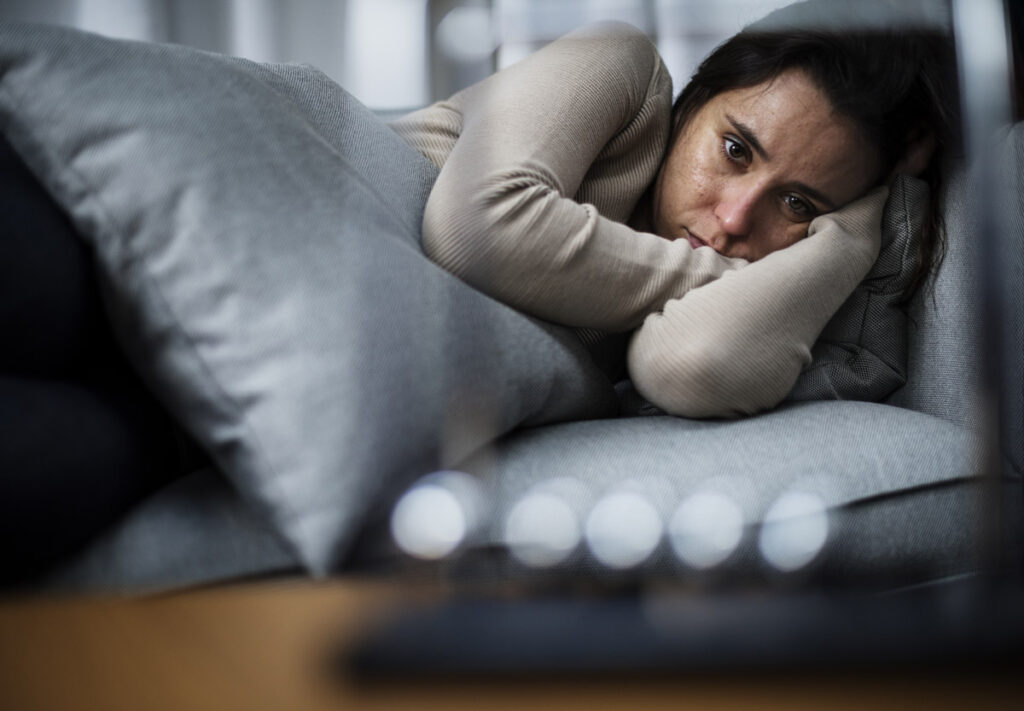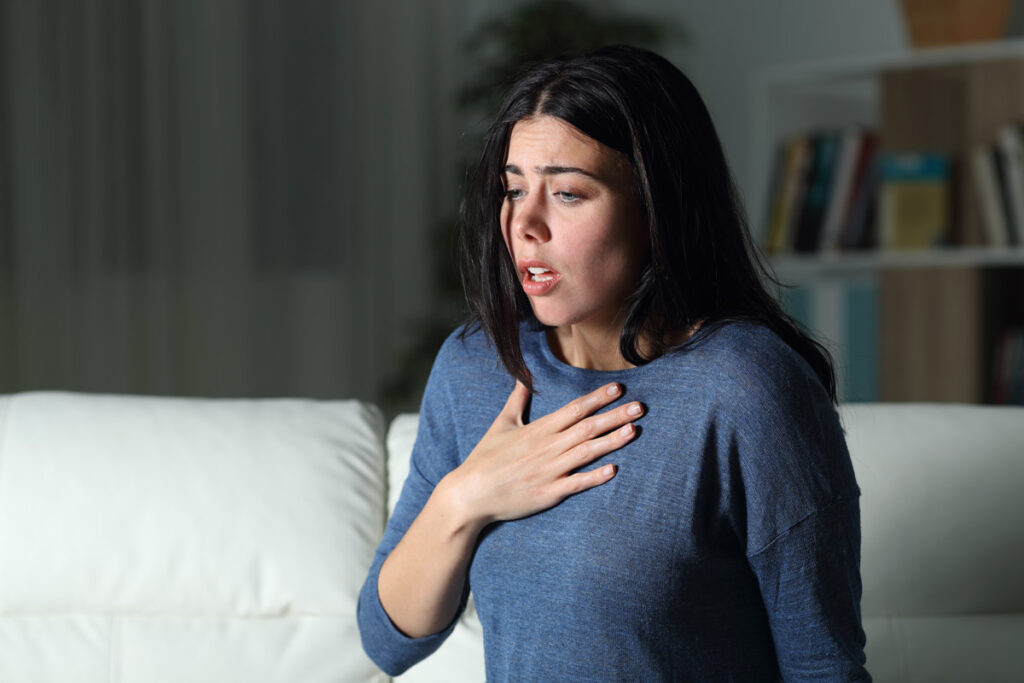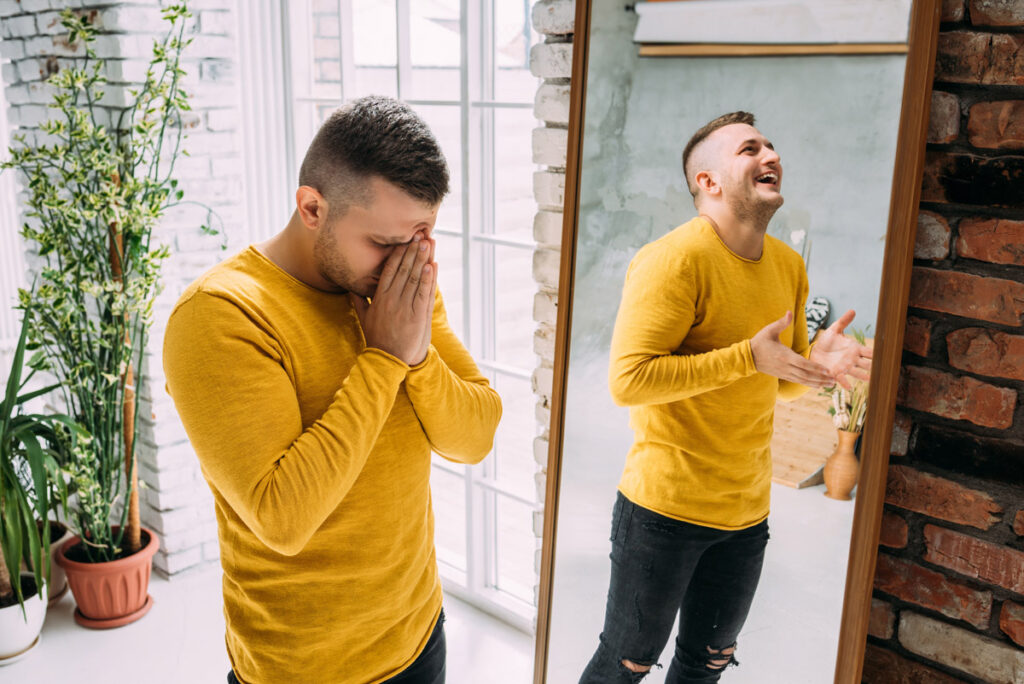Programs
At Aurora Recovery Centre we can help you grow in an ecosystem of understanding.
Depression, Anxiety, and Bipolar Disorder Treatment in Gimli, Manitoba

Everyone feels sad, anxious and euphoric at times. These emotions are part of the natural rhythms of life.
But when these feelings become extreme and last for extended periods, they may be signs of a treatable mental illness.
The good news: With the right treatment, people with clinical depression, anxiety disorders, bipolar depression, chronic depression and bipolar disorder can manage their symptoms and lead healthy, productive lives.
What is Depression?
Clinical depression (also known as major depression or depressive disorder) is a common mood disorder affecting millions of people around the world.
This legitimate, serious medical condition involves prolonged depressed moods (sadness, feeling irritable, emptiness) and may include a loss of pleasure or interest in activities the person previously enjoyed.
In clinical depression, these symptoms typically last most of the day, almost every day, for a period of at least two weeks. Clinical depression is treatable, but many people do not realize they have it, and they may face barriers to getting help.
Symptoms of Depression
Clinical depression is different from normal fluctuations in mood. In addition to feeling sad, irritable and/or empty for long periods of time, signs and symptoms of depression may include:
- Excessive guilt and feelings of low self-worth
- Problems concentrating
- Thoughts about dying or suicidal thoughts
- Feeling very tired, or having low energy
- Feeling hopeless about the future
- Changes in sleeping patterns
Severe depression symptoms and bipolar depression symptoms can hold one back from leading the life they want to live.
What Causes Depression?
There is no single cause of clinical depression. It involves a complicated mixture of biological, social and psychological factors that may include:
- Family history of depression (genetics)
- Traumatic life events (including bereavement and unemployment)
- Income, housing, prejudice and workplace stress
- Side effects from medications for a physical illness
Depression Treatment Options
Major depression can be treated with talk therapy that encourages new ways of thinking, coping with life events and relating to others.
Exercise, healthy eating habits, connections with friends and family, as well as time in nature, are all forms of self-care that can also help a person manage their severe depression.
Some adults also use medication, in combination with talk therapy and self-care, to manage their clinical depression symptoms.

What is Anxiety?
Anxiety disorders are the most common types of mental illness, affecting an estimated 1 in 10 Canadians. They affect both children and adults.
People with an anxiety disorder experience prolonged, intense feelings of fear or distress that is out of proportion with reality.
Anxiety disorders can interfere with personal relationships and the ability to function at work or school. There are many types of anxiety disorders, including Panic Disorder, Phobias, Post-Traumatic Stress Disorder, Obsessive Compulsive Disorder and Generalized Anxiety Disorder.
Symptoms of Generalized Anxiety Disorder
- Worrying excessively about ordinary situations and events for at least six months
- Expecting the worst to happen, despite a lack of evidence to support those feelings
- Nausea
- Fatigue
- Headaches
- Muscle tension
- Trembling
It’s common to have both anxiety and clinical depression at the same time. Overlapping symptoms of depression and anxiety include:
- Trouble concentrating
- Memory problems
- Aches and pains with no apparent cause
- Increased irritability
- Changes in energy level
- Sleep pattern changes
Treatment for Anxiety Disorders
It is possible to effectively treat an anxiety disorder.
The most common treatment is a combination of drug therapy and cognitive behavioural therapy (CBT).
CBT helps people transform anxious thoughts and feelings into rational responses. Breathing and meditation techniques can help, as well as support groups.

What is Bipolar Disorder?
Bipolar disorder is a mental illness that involves unusual changes in a person’s mood, activity levels, energy levels and ability to concentrate.
A person with bipolar disorder experiences both manic episodes (feelings of elation, irritability, energy levels and activity) and depressive episodes (feeling very depressed, sad, indifferent or hopeless).
There are three types of bipolar disorder:
- Bipolar I disorder. Involves manic episodes lasting at least seven days, or so severe the person needs immediate medical help. Depressive episodes that last at least two weeks are also common symptoms of this disorder.
- Bipolar II disorder. A pattern of depressive episodes and less-severe manic episodes (hypomanic episodes).
- Cyclothymic disorder (cyclothymia). Hypomanic and depressive symptoms that recur but are not intense enough or prolonged enough to qualify as hypomanic or depressive episodes.
A full list of symptoms of manic episodes and depressive episodes in bipolar disorder is available here.
How to Treat Bipolar Disorder
Bipolar disorder is a life-long illness that requires ongoing treatment. This usually includes a combination of medication and talk therapy.
CBT is also sometimes used as part of a comprehensive treatment plan for bipolar disorder.
Is There Hope for People With Depression, Anxiety and Bipolar Disorder?
Yes, absolutely.
With treatment and lifestyle changes, people with depression, anxiety and bipolar disorder can manage their illnesses and lead productive, successful lives.
Aurora Recovery Centre can help, with a compassion team of experts that includes licenced counsellors and client care specialists who guide patients on their path to better health.
By treating the whole person and addressing the underlying social and environmental factors that impact depression, anxiety and bipolar disorder, Aurora Recovery Centre helps people from all walks of life manage their illness and achieve their long-term wellness goals.
Frequently Asked Questions
Common symptoms of depression include persistent sadness, loss of interest or pleasure in activities, changes in appetite or weight, difficulty sleeping or oversleeping, fatigue, feelings of worthlessness or guilt, and thoughts of death or suicide.
Normal anxiety is a natural response to stress or danger and is temporary, while an anxiety disorder involves excessive worry or fear that is persistent, interferes with daily life, and may be accompanied by physical symptoms such as rapid heartbeat, sweating, and trembling.
The main types of anxiety disorders include generalized anxiety disorder (GAD), panic disorder, social anxiety disorder (social phobia), specific phobias, and separation anxiety disorder. Each type has its own specific symptoms and triggers.
Common symptoms of bipolar disorder include episodes of mania or hypomania (elevated mood, increased energy, racing thoughts), episodes of depression (sadness, fatigue, changes in sleep and appetite), and periods of relative stability between mood episodes.
Yes, it is common for individuals to experience both depression and anxiety simultaneously. This is often referred to as comorbid or co-occurring depression and anxiety disorders.
Treatment options may include psychotherapy (such as cognitive-behavioral therapy), medication (such as antidepressants or anti-anxiety medications), lifestyle changes (such as exercise and stress management techniques), and alternative therapies (such as acupuncture or mindfulness meditation).
While medication is often a crucial part of managing bipolar disorder, some individuals may also benefit from psychotherapy, lifestyle changes, and support networks. However, it’s essential to work closely with a healthcare provider to develop a comprehensive treatment plan.
Yes, lifestyle changes such as regular exercise, healthy eating, adequate sleep, stress management techniques (such as mindfulness or relaxation exercises) and avoiding alcohol and drugs can all contribute to managing symptoms and improving overall well-being.
GET HELP NOW
"*" indicates required fields
